One of the most crucial things travelers prioritize is safety. How safe is their destination city, or how can they keep themselves safe while abroad? With the increased number of young people traveling and people plastering curated pictures of their travel adventures all over Instagram to influence people to travel, it is vital to discuss the safety measures to take in travel dream destinations like Paris.
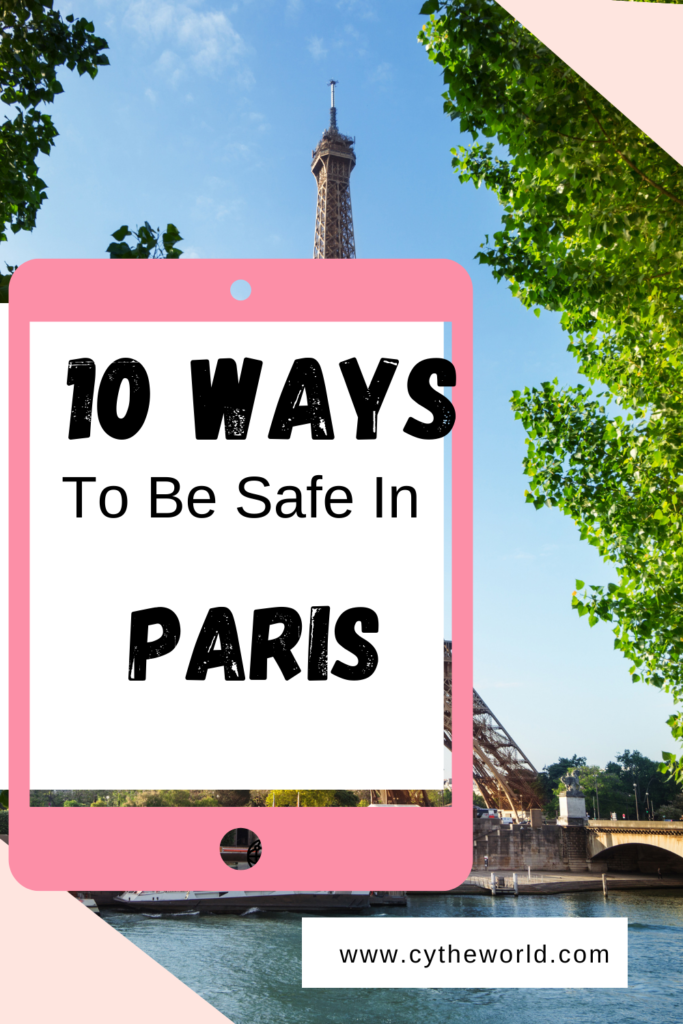
European destinations are famous for American tourists and other tourists from all around the world. The Netflix hit series “Emily in Paris” influenced young women to go to Paris and find love. After all, Paris is the City of Love. Later this year, Paris will host the Olympic games, meaning there will be a lot of tourists landing in the city of light. As someone who lived in France and visited Paris over thirty times, I think it is necessary to talk about safety and provide Paris safety tips.
Paris, like most metropolitan cities, has its good and its bad. It is generally safe to explore the city. However, you also need to be vigilant. Crime in Paris is like no other. As an American, I know what neighborhoods not to go to because of its sensibility to crimes. However, in France, besides places you can identify as hot zones, sometimes crimes can find you in your residence. This post will discuss security tips for visiting Paris when you are outside and when you are in your hotel, Airbnb, or apartment. Before we dive into the safety tips, let’s discuss the common crimes you can find in Paris.
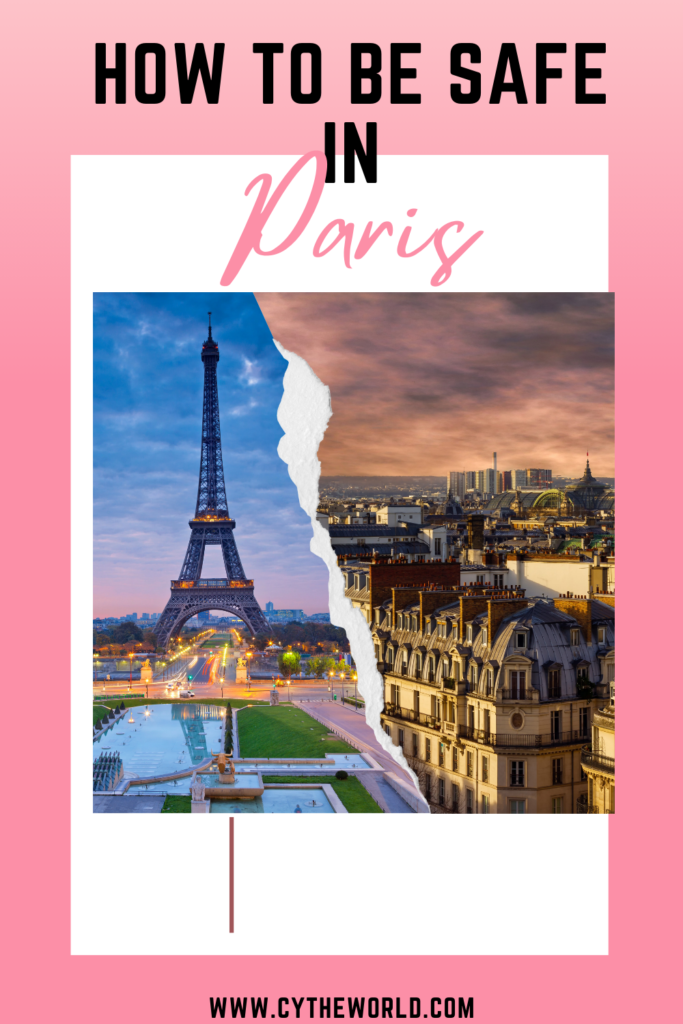
Common Crimes in Paris
Before diving into how to stay safe in the streets of Paris, let’s first discuss the common crimes prevalent in the French capital. With the influx of tourists arriving in Paris and visiting Parisian’s famous attractions like the Eifel Tower, Champs Elysees, Sacre Coeur, and others, crime against tourists is almost inevitable. Common crimes are pickpocketing, credit card theft, and bicycle theft. Although Paris is safe to live in, being a tourist makes you susceptible to most crimes in Paris. At night, tourists can experience violence by resisting criminals. Although taxis are safe, there have been instances where taxi drivers have attacked women. Residential break-ins are also common. If you live in a place known for tourist attractions or if someone is watching you or knows you are a foreigner, you become susceptible to break-ins. However, the most common and lucrative crime in Paris is pick-pocketing because if a thief gets your wallet or bag, they can steal your bank cards and identity cards or sell your belongings. In a previous post, I discussed how someone broke into my Airbnb and stole my computer, passport, and purse. Although that experience happened in Marseilles, it is also common in Paris. Hence, it is vital to discuss safety precautions in Paris.

How To Keep Yourself Safe in the Streets of Paris?
- Lose Your Foreignness
One of the things that has worked to my advantage when living in France and staying in Paris was the fact that I prepared myself to be a local. “How to act like a local,” you might ask. Well, it starts with how you prepare for your trip. Before going to Paris or any other country, I do my research. Besides researching where to go, what to see, and what to do, I researched the locations. I searched for the culture and habits of the locals. I join community groups online to get personal narratives. I ask questions. I use Google Maps to familiarize myself with the surroundings. Although there is no way to know what awaits you, preliminary research helps you become familiar with your surroundings and not look lost once you arrive. Criminals know how to spot a foreigner or a sensitive person. Looking lost or out of place is one of the tells that alert criminals. Therefore, when you prepare yourself before traveling, you have an idea of where you are and present a confident presence.
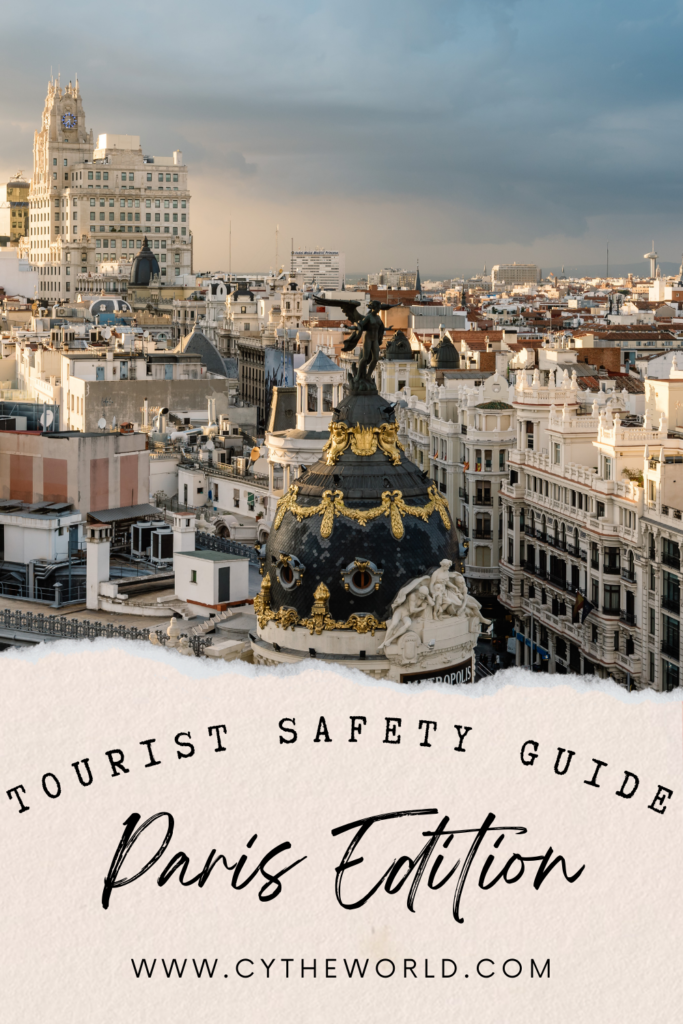
- Learn the Language
Another way to be prepared and confident is by learning the local languages. Learning a language does not mean becoming proficient in a particular language. However, having the basics will help keep you safe. When you know the basics, it shows that you are familiar with your local culture. It hides your foreignness. You can pick up on conversations and hear something that may not sound right.
One thing I do with languages is learn about the local slang. Before going to France, I did not know what “Verlan” was. I am a native French speaker but have never heard the term “young people” used in France. When I listened to some conversions during my first week there, I had no idea whether the kids were still speaking French. However, I quickly learned that young people use Verlan and criminals use it for coding purposes.
Moreover, when you know how to speak the language, you prevent yourself from getting scammed. Criminal activities can come from anywhere. I once took an unregistered taxi when I was in China. The agent who came to “help” knew I did not speak Chinese and would be grateful to get the help of someone who spoke English. There are instances where vendors will inflate their prices because they know you are a foreigner and cannot understand what they are saying to each other. I witnessed a ticket teller refuse to sell tickets to Versailles to a group of foreigners because of the language barrier. That is why learning the language or knowing the basics is tremendously crucial.
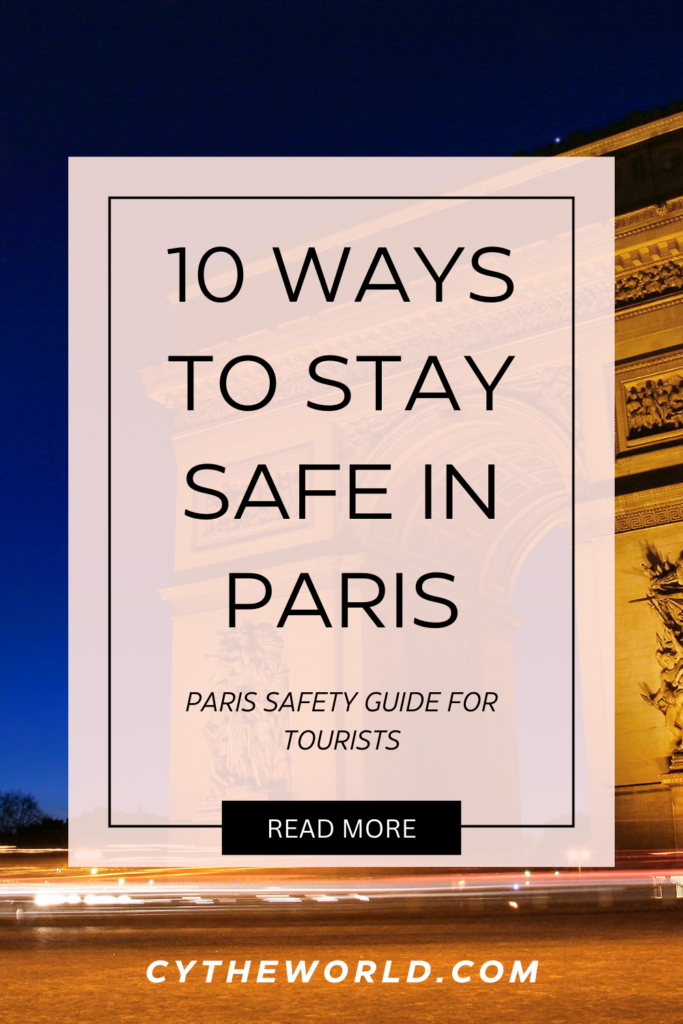
- Dress Like the Locals
In a previous post, I discussed researching local customs and dress codes. Sometimes, the way we dress tells us where we are from. I learned that American dress codes are sweatpants and yoga pants. Therefore, a better way to blend in is to follow the locals. Do not dress like what you think the locals dress from your assumptions. The best way to spot a foreigner is when they dress like what they believe the local dress. A friend told me, “The best way to spot someone not from Tennessee is when they wear white cowboy boots.” Following that logic, please don’t go to Paris and wear a barret every day. Find out what young people like yourself dress like so you can blend in.
One tell that gives away Americans abroad is that sometimes we wear yoga pants and sweatpants as casual wear. I remember my French friend asking me if I was going jogging when he saw me trying to leave my apartment with sweatpants to go to the store. When I said no, he had a disapproving look that made me change. Later, when I moved to Belgium, I cruised around different shopping centers and saw an Italian store next to the American store. The Italian shop had suits, dress pants, and business casual clothes. The American store had baseball caps, yoga pants, sweatpants, and sports bras as the only American attire. That is when I remembered my conversation with my friend in France and realized how our dress alerts our foreignness and can make us susceptible to being targets of crimes.
- Do not be Flashy!
Following the previous point, this is another way to prevent yourself from being a target. Although European fashion looks expensive sometimes, in reality, they are not. Europeans are more relaxed in their dress code than Americans are. You will see a lot of people in office jobs wear street clothes. Young people mainly shop at H&M and Zara. Professional attire in the States is for a higher class of people in Europe. Although you may buy a Micheal Kors dress at Marshall’s, wearing it in the street of Paris will not translate to the fact that you purchased it at a department store like Marshall’s.
When in Paris, understand your Americanness is sometimes currency. Therefore, there is a sentiment that we are flashy and dress flashy. My French counterparts were surprised that at 20 years old, I had a $500 Micheal Kors bag and backpack. A friend advised me not to wear it because pick-pocketers would chase me down. When I wore it on occasion, I had to wear it inside my coat to protect myself and prevent someone from snatching it out of me. In summary, if you have someone of value, please don’t wear it out in public.
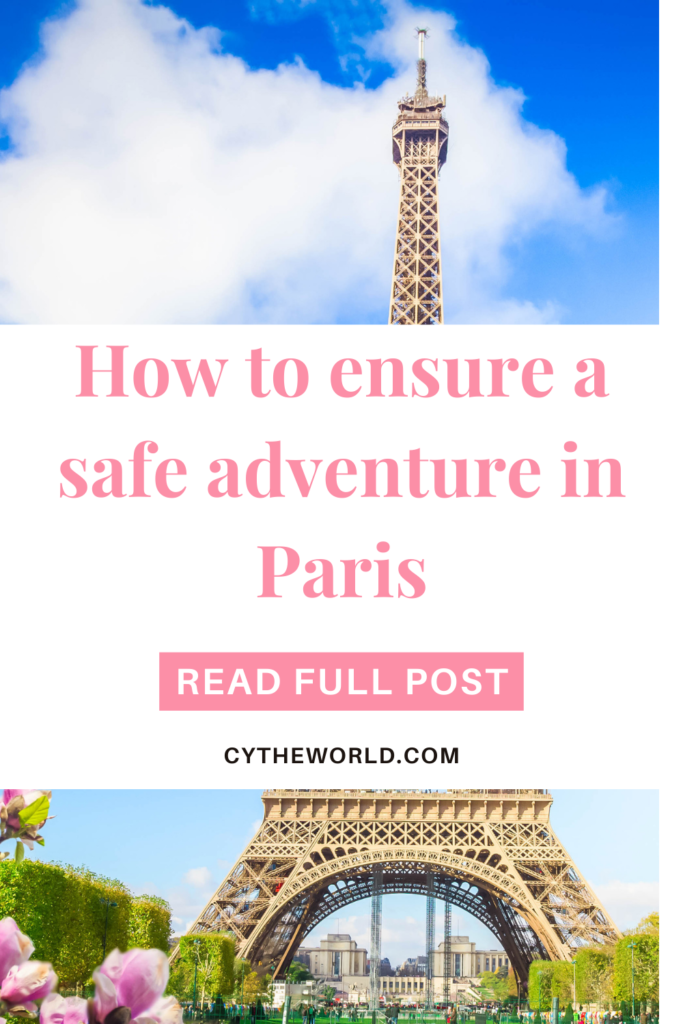
- Carry a Small Amount of Cash
The other vital way to keep yourself safe is to carry small amounts of cash. In another post, I discussed the importance of bringing money with you abroad. Having cash on you helps you keep track of your spending. It also helps keep you safe from digital scams. The #1 thing to know is never to pay something with big bills. People do not advise you to take out a 100 euro bill to pay at a store because 1.) there is an assumption that it might be fake and 2.) it can attract a criminal. Also, if you were to be a victim of a pick-pocket, you’d want him to find a 5 euro bill instead of 50 or 100. I always had 20 euros with me regularly when I was going out. If I was going shopping for clothes or groceries, that is when I had a little bit more money or used my American credit cards. I always sent an alert when I used it to verify the transaction.
Moreover, one of the reasons I prefer using cash while in France is because the ATM once swallowed my French bank card. It was the first time I experienced this event, and when it happened, I did not receive good customer service from the bank teller. After more research, I discovered this was common in France and met another friend who had their American card swallowed at the ATMs. To add salt to my uneasiness about the whole situation, I saw a French documentary about how thieves use machines to get your cards at the ATM, register your 4-digit passcode, and wipe your account clean. I was grateful that the ATM that swallowed my card was at my bank. I went inside when it happened and put a lock on my account. Locking my account prevented someone from wiping my account clean. That experience is one of the primary reasons I always have a small amount of cash when traveling abroad.
- Use the “tap” Method to Pay with your Credit Cards.
Following the previous point and the details, I like to use the “tap” method when paying with my credit cards. At first, I was not a fan of the “tap” method because I thought if someone were to steal your card, they could easily make purchases and use it to retrieve money. With credit cards not requiring a password, I felt the “tap” method would be a jackpot for criminals. However, I have become a fan of the “tap” method. I used it every time I was in Paris and placed an alert for safety. Using the “tap” method has made my time at the checkout faster and safer. I rarely used my debit card abroad because I did not want to enter the passcode and fall prey to scammers. I would use my credit card and transfer the money I used from my debit card to pay off my credit card once I was home.
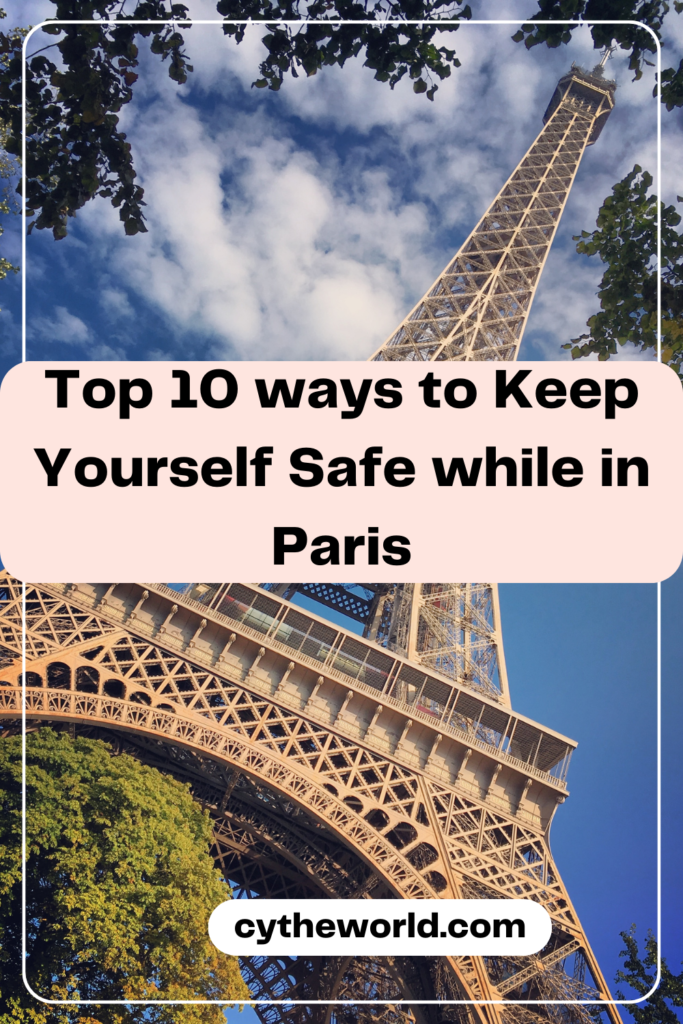
- Avoid Using Your Phones
Although this point is number 7, this is one of the most crucial tips to keep yourself safe in Paris. One of the biggest draws for pick-pocketers is phones. When a thief sees you on your phone, they know you are distracted and susceptible to being a victim. Also, walking with your phone in hand invites criminals to find ways to retrieve it. I know it is hard to travel without your phone. We use our phones to take pictures or videos. You may need to make a call or receive a call. However, refrain from using your cell phones at all times. It helps you stay alert and conscious of your surroundings. When I am traveling with friends, we take turns taking each other pictures. That way, we look after each other. When we needed to take a group photo, I asked other tourists and offered to take their pictures in return. Doing so helps mitigate our access to becoming prey. By avoiding using your phone, you ensure your safety while in Paris.
- Post on Social Media After you Left a Location
Last but not least, post on social media after you leave a location. Social media has become a part of our lives. It has become second nature to us to constantly post without thinking of where we are. I have been guilty of doing the same thing. However, posting on social media is another way criminals find you. They may use your location to see where you are. If you post wherever you go, you leave breadcrumbs for criminals. For safety purposes, avoid posting on social media at big tourist attractions. Wait until you are in the comfort of your residence to post about where you were.
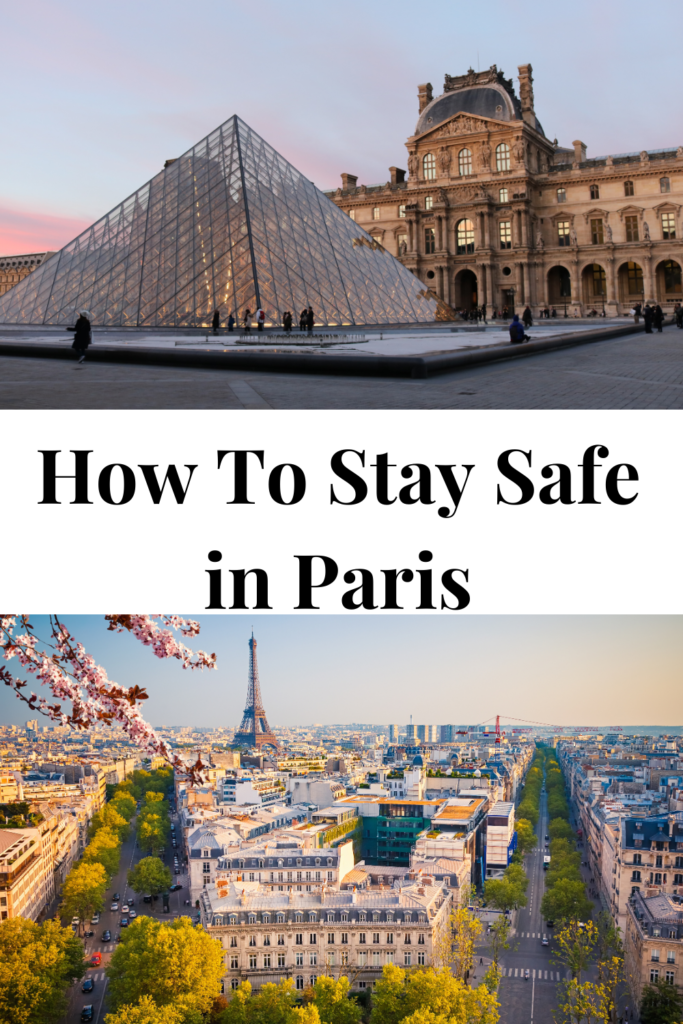
Public transportation safety in Paris
Public transportation is mundane for Europeans, especially in big cities like Paris. Everyone takes the bus, metro, or subway. That is why transportation stations have become hot spots for pickpocketers. Hence, you must be vigilant because you can become a victim in public transportation.
- In Train Stations
When you are at the station, be aware of your surroundings. Have your belongings close to you. Never leave your items with someone you just met. Ladies, have your purse in front of you. Do not let it hang on a chair behind you. Always have a hold on your bag, purse, or suitcase.
- On the Bus/Metro/Subway
The bus, metro, and subway attract many people and are also hot places for criminal activities. When on the bus, do not sit in the back. Be aware of your surroundings. Have your electronics in your bag or your purse. I usually like listening to music on the bus or subway, but doing that distracts me. You want to be alert at all times. Have a hold on your bag. Always look forward. When the subway is crowded, be aware of who is around you. Ladies carry small purses. Criminals work in groups. When someone suspicious tries to start a conversation with you, politely smile and end the interaction. Assure you are alert even when you leave because somebody may follow you out of the metro.
Safe Accommodation Choices in Paris
I stated that I prefer hotels over any other accommodation options. After experiencing a break-in and being the only female in a hostel with all men, hotels are safer for my piece of mind. However, some people don’t like staying at hotels. Airbnb provides a home away from home, giving people a sense of normalcy. Young people like hostels because they are affordable and they get to make friends with their housemates. Hence, we will talk about how to find safe accommodation choices in Paris.
When looking for safe accommodation in Paris, it is vital to do your research. Look for hotels, Airbnb’s, or apartments with good reviews and ratings, and make sure they are in a safe neighborhood. The central districts, such as the 1st, 4th, 5th, 6th, 7th, and 8th arrondissements, are generally safer and have plenty of tourist attractions. On the other hand, you should avoid some areas of the 18th and 19th arrondissements due to high crime rates. In terms of specific neighborhoods to avoid, Barbès-Rochechouart, Goutte d’Or, Chateau Rouge, and Stalingrad are known for pickpocketing, street crime, and violence. It’s best to be cautious when traveling to these areas, especially at night. Stick to well-lit areas and avoid carrying valuable items that might attract thieves.
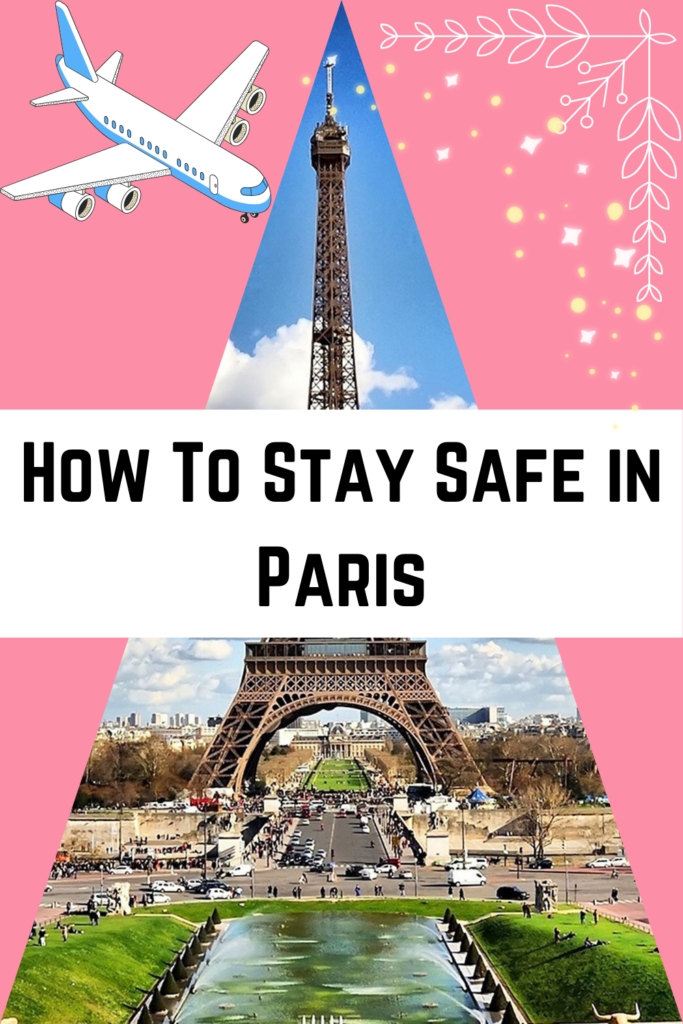
To prevent residential crimes, there are a few basic safety precautions to take. Always lock your doors and windows. Use additional locks or security bars if possible. Keep your valuables in a safe or locked cabinet, and avoid leaving your passport, credit cards, or cash in your room. If you’re booking an Airbnb or apartment, check the host’s reviews and reputation to ensure the property is legit and safe. Check to see where there are cameras in your building or inside the Airbnb. Double-check your surroundings when you are leaving your house. Other tips include having the emergency numbers with you. Learn about procedures to take in case of an emergency. Check your peephole before opening your door. These steps will ensure you stay safe and enjoy the city of light.
In conclusion, Paris is a dream destination. There is so much to do, see, and experience. You get to see the Eifel Tower in all its glory. Versailles invites you for a royal experience. L’ouvre takes you on human beings’ priceless body of expression. However, to enjoy your time in Paris, you must take extra steps to ensure your safety. The best way to enjoy yourself is to ensure your safety. Taking steps like losing your foreignness, learning a new language, and not posting your location are ways to provide a safe journey in Paris.
Thank you for reading. Please remember to like, share, and leave comments about your experiences and other safety tips you may have.
Until next time, bon voyage!
xoxo,
Cy
Leave a Reply
You must be logged in to post a comment.